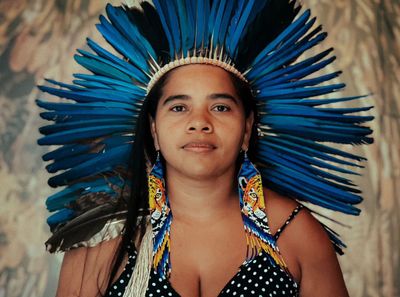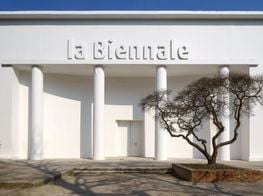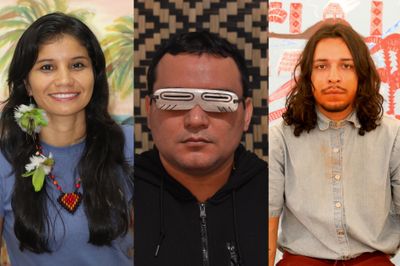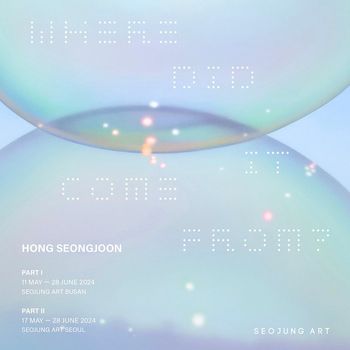Glicéria Tupinambá to Represent Brazil at Venice Biennale
Organisers described Tupinambá as 'the living history of the Tupinambá indigenous people' and the persecution they've faced.

Glicéria Tupinambá. Courtesy the artist and Fundação Bienal de São Paulo.
Indigenous artist and activist Glicéria Tupinambá will lead Brazil's delegation to the 60th Venice Biennale next year.
Tupinambá was imprisoned in 2010 after speaking out against police brutality. The Brazilian government considered the Tupinambá people extinct until 2001, and they are still fighting for recognition of their territories and culture.
Tupinambá will work with curators Arissana Pataxó, Denilson Baniwa, and Gustavo Caboco Wapichana—all of whom are Indigenous Brazilian artists—to produce an exhibition entitled Ka'a Pûera: we are walking birds.
'In ancient Tupi, the language of the Tupinambá, Ka'a Pûera are ancient forests that were cut down to make fields,' the curators explained in a statement. 'After the harvest, this space is left to rest and a place with lower vegetation emerges.'
As well as serving as a metaphor for resurgence, Ka'a Pûera (also spelt 'capoeira') is a small bird with brown, orange, and grey feathers that help camouflage it on the forest floor.
(In 2020, Glicéria Tupinambá used over 4,000 feathers to create the first full-body Tupinambá cape in centuries.)
With these dual meanings, the curators said, the exhibition remembers 'those who are on the margins, deterritorialised, invisibilised, imprisoned, and whose territorial rights have been violated,' while 'believing that we are human-birds-memory-nature, because there is always the possibility of resurgence and resistance.'
The Brazil Pavilion will be renamed the Hãhãwpuá Pavilion, referring to the Indigenous Pataxohã term for Brazil.
Brazil's presence at the Biennale is backed by the Fundação Bienal de São Paulo in partnership with Brazil's Ministry of Foreign Affairs and the Ministry of Culture.
The Fundação Bienal de São Paulo was recently criticised in an open letter 'rejecting working conditions' at the 35th Bienal de São Paulo (6 September–10 December 2023).
In response, a spokesperson for the Foundation reportedly claimed that quick comparative research revealed that workers are being fairly compensated. —[O]









































































































































































